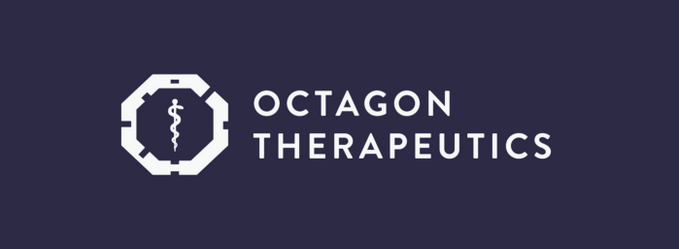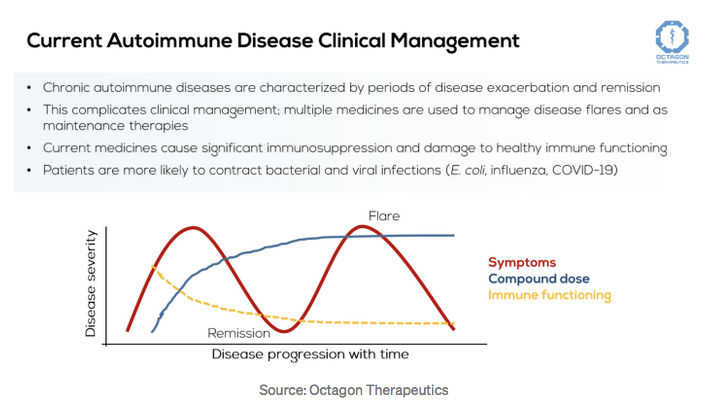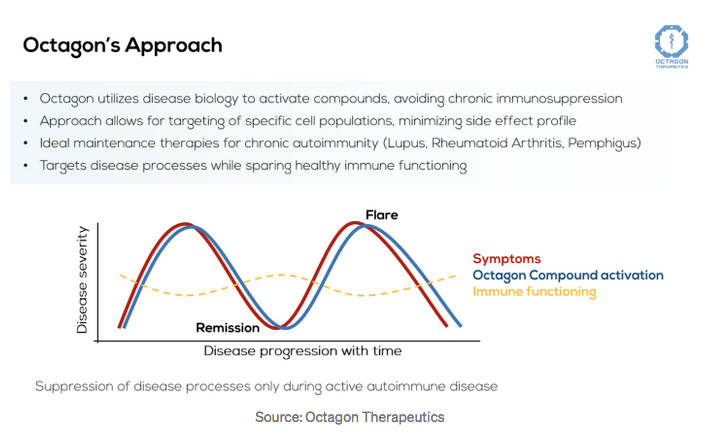Chances are, you know someone with an autoimmune disease. Whether it’s type 1 diabetes, rheumatoid arthritis, celiac disease, or dozens of other maladies, there are over 23 million Americans with disorders that stem from their immune systems mistakenly attacking their own cells. Typically, the immune system serves as a line of defense against unwanted pathogens, parasites, and aberrant cells. However, autoimmune diseases occur when our immune cells mark normal, functioning cells as foreign, leading to an onslaught of unpleasant symptoms.
Thankfully, there are ways to manage autoimmune disorders. Current treatments, such as small molecule immunosuppressives, steroids, and biologics, decrease overall immune function to blunt the negative effects of an overactive immune system. Because there are no specific cures for autoimmune diseases, patients need to consistently use these drugs to control their conditions, making this area very profitable. The immunosuppressant drug, Humira, treats a variety of autoimmune disorders and is set become one of the best-selling drugs of all time. On and, now, off patent, the drug has generated the largest sales revenue of any pharmaceutical for each of the past 5 years. Today, it brings in over $20 billion a year. Obviously, there is a need here — so what is the problem?
While immunosuppressants are typically effective in controlling the symptoms of autoimmune disease, they weaken the entire immune system, significantly increasing a patient’s chances of contracting bacterial and/or viral infections. For example, you’ve probably heard of how being “immunosuppressed” puts you at a much higher risk of contracting and experiencing serious complications from COVID. Essentially, by tackling one disease, you put yourself at risk for others.
A notable characteristic of autoimmune diseases is that they are often episodic — a characteristic that widely used drugs don’t effectively address. Typically, a patient with a chronic autoimmune disease will experience periods of disease exacerbation and remission, complicating traditional treatment methods and requiring the use of multiple medications. As represented below, current drugs require constant high dosage and cause prolonged decrease in immune function.
Current treatments fail to take advantage of the fact that malfunctioning immune cells are metabolically distinct from normal body cells. Just as cancerous cells can be differentiated from healthy ones, the cells that cause autoimmune diseases undergo processes that allow them to be identified and differentiated from healthy immune cells.
That’s why we’re excited about one of our newest portfolio companies, Octagon, and their uniquely precise approach to treating autoimmune disease. Octagon is an emerging biotech start-up based in Cambridge, MA that identifies and specifically targets these singular metabolic changes in disease causing immune cells, leaving the patient's properly functioning immune system intact. Octagon’s compounds are activated by disease flare-ups instead of broadly suppressing the immune system. As a result, side effects that currently come along with existing immunosuppressant treatments can be mitigated and healthy immune function can continue to be robust.
Octagon’s science is rooted in the fact that problematic immune cells perform certain metabolic processes that normal cells do not. Their lead compound, OTG177, is recognized by and will bind to an enzyme only present in malfunctioning B-cells. By linking OTG177 to a drug inhibiting cell growth, Octagon’s compound effectively shuts down targeted immune cells, while not impacting the rest of the immune system. The degree of expression of these enzymes actually highly correlates with disease severity, a characteristic that the Octagon team is exploring further.
Octagon intends to, first, focus on Pemphigus Vulgaris, a serious orphan disease that represents a 600 million dollar market opportunity. But their approach can also be applied to many other diseases, such as lupus or multiple sclerosis. Ultimately, they are well-positioned to break into the rapidly growing 20 billion dollar autoimmune disease market. The ability to treat autoimmune diseases without severe side effects and broad immune suppression will revolutionize the current standard of care, offering patients safer, more effective medicines to treat their conditions.


